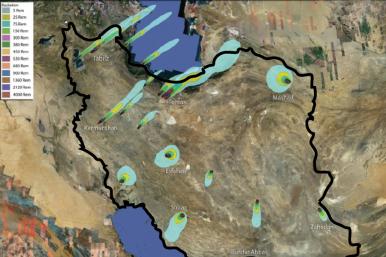
Never miss a breaking event on U.S. policy interests in the Middle East. Customize your subscription to our expert analysis, op-eds, live events, and special reports.
Today, the Islamic Republic of Iran poses the most serious and urgent set of security challenges to the United States and its allies in the greater Middle East. Since the Khomeini revolution in 1979, Iran has sought to export its radical ideology through the use of terrorism, subversion, and support to ideological fellow-travelers throughout the Muslim world.
Never miss a breaking event on U.S. policy interests in the Middle East. Customize your subscription to our expert analysis, op-eds, live events, and special reports.